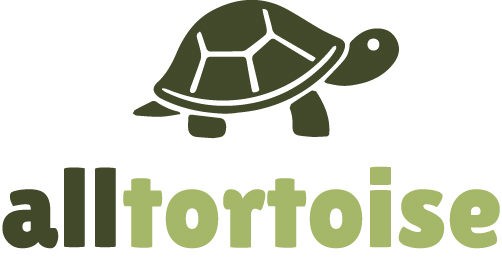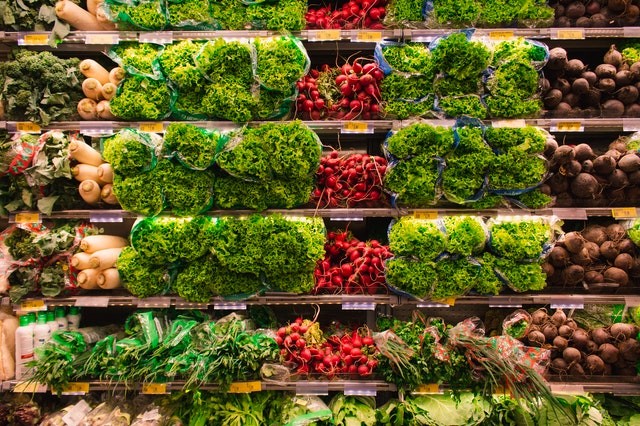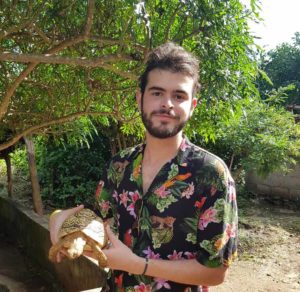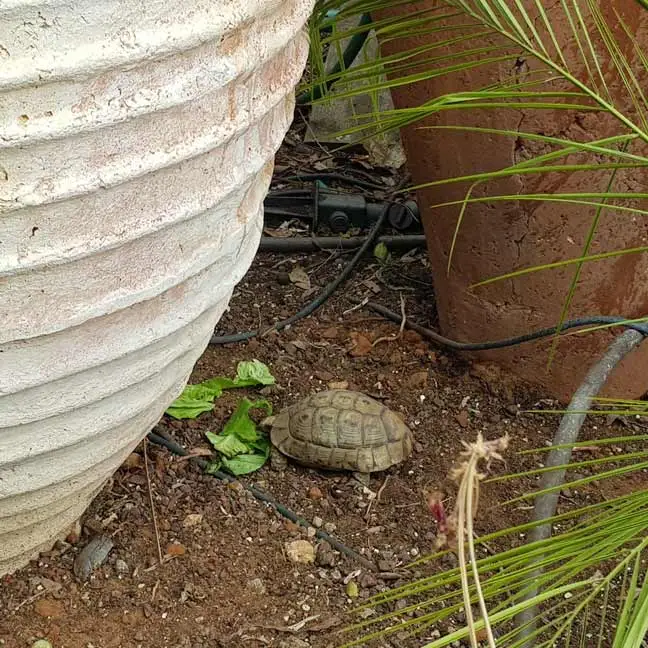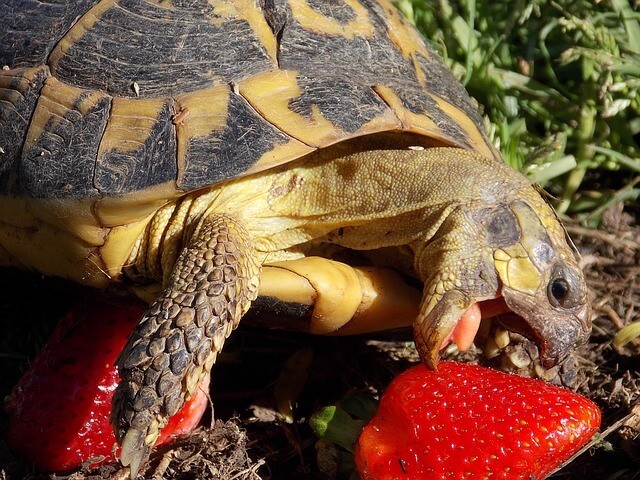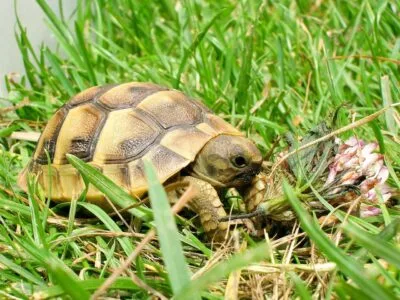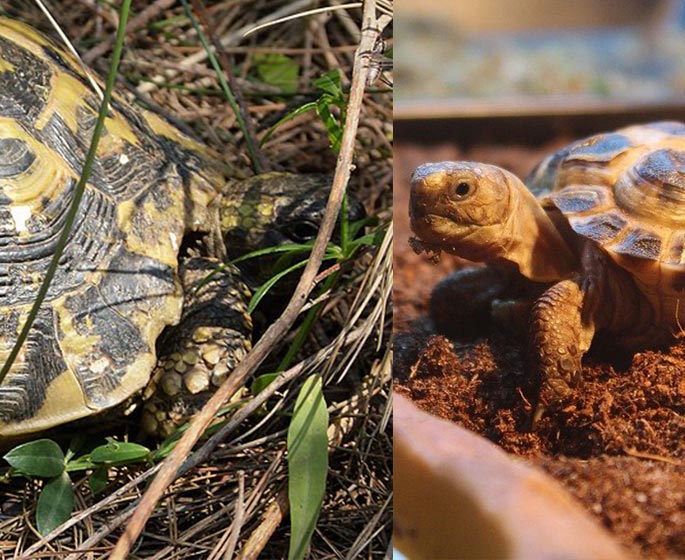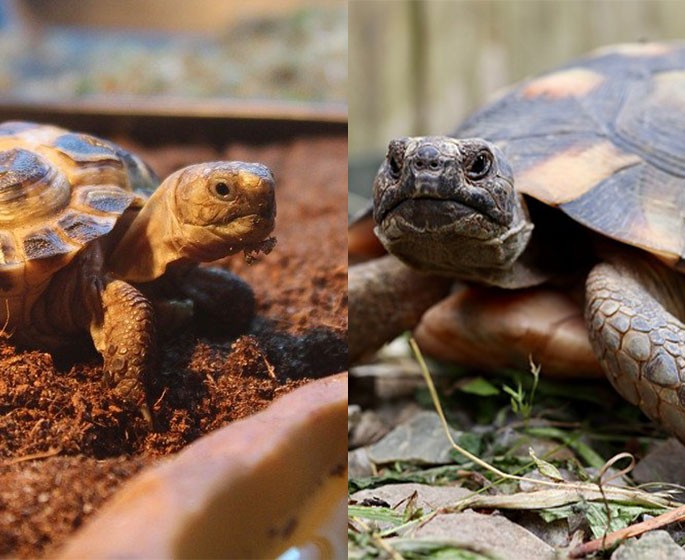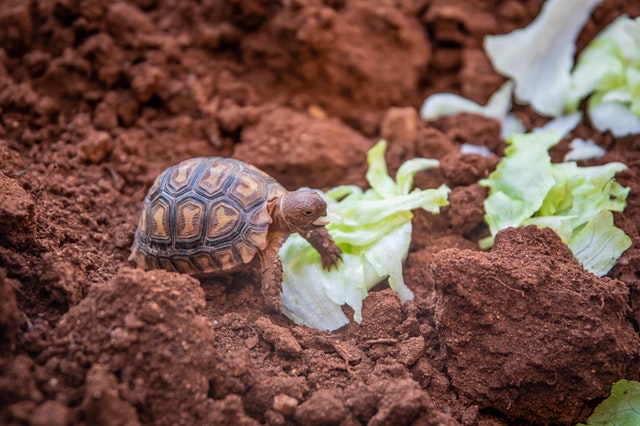Aside from their ability to adapt to different environments, Russian tortoises became the most favorite reptile pet of many because of their longer lifespan. In line with that, you should ensure that you will give them their basic needs, such as proper diet and environment.
How often should I feed my Russian tortoise? This is one of the most common questions asked by those who own reptile pets for the first time. Knowing how much and how often a Russian tortoise should be fed is quite a technical task. As an owner, you always want the best for them to keep them healthy.
In this post, you will learn when and how much food you should feed your Russian tortoise. So, without further ado, let’s get started!
How Often Do Russian Tortoises Eat?
You need to feed baby Russian tortoises more often than the adult ones. The reason is very obvious: they require more nutrition to survive. For baby Russian tortoises, you need to feed them every single day. On the other hand, it is ideal for feeding fully grown tortoises at least five times a week. To ease digestion, it is recommended not to give any food to adult Russian tortoises for at least two days straight.
Since Russian tortoises are herbivores, their diet should contain leafy greens, weeds, and grasses. But you can also feed these adorable reptiles with some types of vegetables and fruits. Even though fruits and grasses can hydrate Russian tortoises, they still need water to ease hydration while keeping them fresh. Do not forget to change the water in their container regularly.
Most of you would think that feeding Russian tortoises is overwhelming and scary. But once you know and understand the things they eat and the proper way to feed them, you can keep your pet tortoise satisfied and healthy.
Is It Ideal To Feed Russian Tortoises Every day?
Regular feeding for less than one-year-old Russian tortoises is ideal for absorbing nutrients. But, when it comes to adult tortoises, veterinarians recommend tortoise owners to feed them not more than five times per week. It is best to starve them for two weeks. This is because they digest food five times slower than other reptiles.
You can perform these starve days on any day of the week. But make sure that you will follow it religiously. But take note that Russian tortoises should not be starved for two days straight. They only need one day to digest all the food they consume for, let’s say, three days.
You can set Monday and Thursday as the starve days for your Russian tortoise. Doing so will prevent them from starving themselves, especially during the summer months. Starving days can also improve their digestive health.
How Often Should You Feed Baby Russian Tortoises?
Unlike the adult Russian tortoises, hatchlings or baby tortoises require to be fed daily, especially during their first year. In addition, hatchlings are not recommended to have starved days. Now that you know how often you should feed a baby Russian tortoise, you might be asking how much food to give them daily.
Although many tortoise enthusiasts are still debating this concept, many recommend first-time tortoise owners to give the whole feeding amount to hatchlings in a single sitting. On the other hand, others always say that feeding baby tortoises twice a day can give them enough time to digest the food.
How often you will feed your baby Russian tortoise daily will depend on your preference. Despite that, it is essential to make the whole feeding routine consistent. Ensure to give them enough food at the same time of the day. Doing so will make their digestive system healthier.
How Long Can Russian Tortoises Go Without Food?
One of the good things about Russian tortoises is that they are one of the robust reptiles you can see in the wild. As long as you are giving them an ideal environment, they can survive for several months without eating. They can go for 24 weeks without food. But, starving your Russian tortoise for more than two days won’t be good for their digestive health.
However, Russian tortoises can survive this long as long as they have access to fresh water and are placed in a tank with perfect humidity and temperature. As a Russian tortoise owner, it is your responsibility to give them food five times a week. But in case you will have a long business trip and taking your tortoise pet is not allowed, make sure to leave them with plenty of water.
Can I Give Supplements to My Russian Tortoise?
As a Russian tortoise owner, you want to keep your pet healthy. So, aside from providing them with the right amount of fruits and vegetables, it is also ideal for adding beneficial supplements to their diet. Calcium is one of the major components that play a vital role in the overall welfare of Russian tortoises.
But before you add calcium to your tortoise’s diet, it is important to measure their UVB exposure. Russian tortoises placed in an enclosed tank require a supplement that contains enough phosphorus. On the other hand, it is recommended to provide a small amount of calcium to Russian tortoises that are raised outdoors.
But take note that adding too much calcium to your tortoise’s diet may cause deficiencies in other important vitamins, including iodine, copper, and zinc. With that in mind, it is ideal for providing your tortoise pet with fruits and greens that are rich in calcium.
Before adding calcium to your tortoise’s diet, it is important to consult with a veterinarian to help you determine the right amount of calcium that your pet needs. This is because some Russian tortoises, especially the young ones, will require a specific amount of calcium for their overall growth.
Aside from calcium, your Russian tortoise may also need a supplement that is rich in probiotics. Probiotics are also an important compound that plays a vital role in keeping your pet’s digestive system healthy and well-functioning.
Foods Your Russian Tortoises Should Not Eat
Aside from knowing what food your Russian tortoise eats, it is also important to understand specific foods to avoid. Before feeding your tortoise, make sure to assess the nutritional content of a certain food.
Avoid plants that contain the following nutrients as they could cause a problem with your pet’s ability to absorb nutrients.
Goitrogens
Avoid fruits or veggies containing goitrogens. This compound could affect your pet’s ability to absorb iodine. Mostly, plants belonging to the Brassicae family contain a high amount of goitrogens.
Purines
Purines are also an essential nutrient that your Russian tortoise needs. But providing too much purine could cause your pet to develop kidney diseases.
Tannins
When your Russian tortoise has a high amount of tannins in its system, it might have a hard time digesting food. This is because it binds protein and other essential nutrients.
Phytic Acid
Phytic acid is one of the components that bind proteins and other essential minerals. Foods like cereals, beans, and peas have a high concentration of phytic acid.
Oxalic Acid
Just like the other nutrients we mentioned above, oxalic acid also binds calcium and minerals. A high level of oxalic acid in a tortoise’s system bound with dehydration could lead your pet to develop long-term kidney failure and kidney stones. Beet greens and rhubarb are known for being rich in oxalic acid. Spinach also contains oxalic acid. Thus, even though this veggie is ideal for your tortoise’s health, it should be given in small quantities only.
Feeding Unnatural Foods
When we say unnatural foods, these are the foods that contain preservatives, which may or may not be good for your tortoise’s health. Feeding your Russian tortoise with unnatural foods is not recommended. Instead, feed your pet with natural food items with a high level of calcium and fiber.
Although we mentioned earlier that you could add supplements to your tortoise’s diet, it is still ideal for incorporating these supplements into the natural diet of your pet.
Feeding Russian Tortoises with Pelleted Food
As you do your research for the best foods to give to your Russian tortoise, there’s a high chance that you have read some experts recommending pelleted foods. Most pelleted foods are rich in rice, wheat, and soy, ideal nutrients to maintain a healthy tortoise.
But take note that this type of food contains omega 6 fatty acid, which could cause your pet tortoise to develop bone leaching. Aside from that, pelleted foods are also rich in phytate that binds minerals, specifically calcium, which is an essential component for your tortoise’s growth.
Conclusion
Before you own a Russian tortoise, make sure that you are equipped with the right knowledge regarding what food you should give them and how often they should be fed. To summarize, baby Russian tortoises need to be fed every single day, while adult Russian tortoises should have two starving days per week.
Knowing how often you should feed your Russian tortoise can be a great contributing factor to your pet’s overall growth and health.
